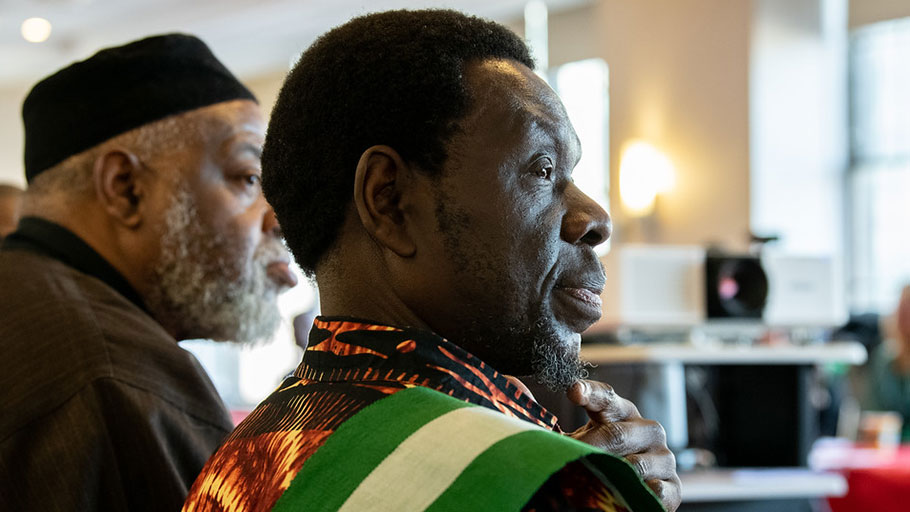Dear President-Elect Biden,
As a veteran African journalist, I have some insights that may help your administration formulate Africa policy.
For starters, I disagree with what your nominee as U.S. ambassador to the UN, Linda Thomas Greenfield — when she was Obama’s assistant secretary of state for Africa — told Shaka Ssali, host of the popular “Straight Talk Africa” program on Voice of America, on Aug. 17, 2016. Greenfield said that while the U.S. would never accept military coups in Africa, she was “not opposed to a country changing its constitution to allow for a third term or unlimited term.” This is a dangerous position and a recipe for permanent tyranny in Africa.
Mr. President-elect, over 60% of Africa’s 1.3 billion population is younger than 25. Our policy needs to relate to the nations in this fast-changing continent differently than ever before.
I recommend appointing youthful ambassadors who are better placed to answer the needs of and connect with this population. More African-American ambassadors, and African immigrants who are U.S. citizens, would also fulfill your pledge for a very diverse administration.
Your administration needs to understand the implications of the fact that Africa has been spared the worst ravages of the COVID-19 pandemic compared to the U.S. Africa has about four times the U.S. population yet, as of Dec. 8, 2020, the total number of cases was 2.3 million with 54,564 reported deaths, according to the Africa CDC. By comparison the U.S. reported 14.8 million cases and 282,785 deaths.
In Africa, the pandemic’s worst toll is not loss of life but economic disruption. Revenue from commodity and mineral exports declined due to lockdowns, and tourism receipts have collapsed. The revenue decline has compromised Africa’s ability to meet foreign debt obligations which totaled $417 billion in 2019. Zambia, whose total debt stood at $27.3 billion, defaulted on interest payments last month. Other countries could follow suit.
Mr. President-elect, this is not the right time for the world to compel African countries to divert scarce resources, needed for food imports or for fighting the pandemic, to service foreign loans. Your administration should consider supporting a debt moratorium as well as forgiveness for Africa. The U.S.’s example could pressure other major lenders to Africa, like China — which owns about 20% of Africa’s debt — to also provide debt relief.
There are two additional ways to extend practical support to Africa. The continent’s youth are tech-savvy, with innovative ideas to improve their economic livelihood. What they lack is seed capital to bring projects to market. President Obama launched the Mandela Washington Fellowship, which brings young emerging talent from Africa for public service internships. They spend time rotating between U.S. governmental institutions.
Your administration could launch an internship focusing on business. Africa’s sharpest youthful entrepreneurs could be selected to learn from leading U.S. enterprises, including Black-owned companies. At the end, they could return home gifted with seed capital. U.S. corporations could support this project, which would be far more productive than providing billions of dollars in traditional aid to Africa since substantial sums of that are embezzled by some corrupt rulers.
Finally, to bring it back to Greenfield’s mistake, the U.S. must stop supporting African dictators. The CIA played a role in deposing Congo’s first democratically elected prime minister, Patrice Lumumba, who was then murdered by political rivals in 1960. The U.S. then helped sustain Gen. Mobutu Sese Seko, the kleptocrat who embezzled billions, for 37 years in power.
Today, U.S. taxpayers’ dollars help sustain another dictator, Gen. Yoweri Museveni, who’s ruled Uganda for 34 years. Recently his security forces killed dozens of supporters of a leading opposition candidate named Bobi Wine, who is giving him a stiff run in the presidential election scheduled for Jan. 14, 2021.
Mr. President-elect, as a result of President Trump’s abuse of power, Americans have a tiny taste of what it means like to have an authoritarian president. Going forward, the U.S. shouldn’t recognize — or support — dictators who rule like life-presidents in Africa.
Good luck as you head to Washington on Jan. 20.















